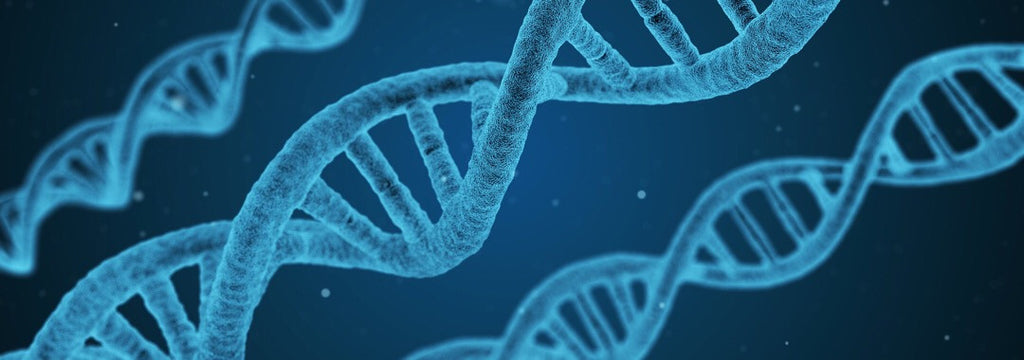
While roughly 40% of people in the United States have the genes that predispose them to celiac disease, the disease is only present in an estimated 1% of the population. Why are so many people genetically predisposed to develop celiac able to tolerate gluten just fine?
Studies have consistently shown us that in addition to genes and gluten, an immunological trigger is needed in order to develop celiac disease. Research suggests that this trigger could strike at any time, meaning people can develop celiac at any stage of life. Yet the more scientists learn about celiac disease, the more clear it becomes that this crucial piece of the puzzle is missing. While specific genes, plus gluten, are necessary to produce celiac, they are clearly insufficient by themselves. What is the other component at play?
"You're talking about an autoimmune disease in which we thought we had all the dots connected," explains Dr. Alessio Fasano, head of the Center for Celiac Research and Treatment at the Massachusetts General Hospital for Children in Boston. "Then we start to accumulate evidence that there is something else."
There are plenty of theories out there that attempt to explain what is different in the 1% of the population that is developing celiac disease. From cesarian sections to the overuse of antibiotics and the hygiene hypothesis, which suggests that as our environment becomes cleaner, our immune system has less to do and basically turns on itself - and maybe on particular foods like gluten - as a distraction. Some researchers think that the window when we introduce gluten to infants could be the catalyst, or whether or not a baby is breastfed. Let's explore what the research tells us so far.
Age of Gluten Introduction
One Italian study wondered if the age at which gluten is introduced into the diet could affect a person's likelihood of developing the autoimmune disease. To test this theory, they kept gluten away from newborns for a year. The researchers were shocked to discover that delaying exposure to gluten didn't actually make a difference in the long run. In some cases it delayed the onset of the disease, but it didn't stop people from developing celiac. Other studies have even pointed to a possible increase in celiac disease when gluten introduction is delayed and others were inconclusive. While more research is needed in this area, experts agree that exposure to gluten should occur along with introduction to solids at approximately 4-6 months old.
Cesarean Sections
A 2010 study in the Journal of Paediatrics found an enhanced likelihood of of being born by cesarean delivery in children with celiac disease when compared to a control group. Researchers concluded that the mode of delivery and associated alterations in the development of enteric homeostasis during the neonatal period may influence the incidence of celiac disease. But plenty of people with celiac disease weren't born by cesarean section, so this is clearly only a possible partial explanation in a much larger picture.
Breastfeeding
Some scientists are pursuing the possibility that breastfeeding provides protection against celiac disease. Since breastfed infants receive protective antibodies, immune-signaling proteins and prebiotic-packed bifidobacteria, they may have an advantage over formula fed babies when it comes to the development of celiac later in life.
Dr. Alessio Fasano was a co-author in a recent study about breastfeeding and the timing of gluten introduction. The results were fairly shocking to him, and actually lead him to some new conclusions and exploration of the microbiome, which we discuss below.
A second study of almost 1,000 children, introduced small amounts of gluten into the diets of breastfeeding infants to see if that fostered a gluten intolerance later on in those who were genetically predisposed to develop celiac disease. The study results were inconclusive but researchers are still determined to explore this potential hypothesis further. Similar to the cesarean section hypothesis, there are plenty of people with celiac disease who were breastfed, making this a partial explanation as well.
The Microbiome
Researchers who recently published their findings in the Journal of Gastroenterology observed that the type of bacteria we have in our guts contributes to the digestion of gluten, and the way this digestion is performed could be the difference between whether the immune system treats gluten as food or as a dangerous invader. Senior study author Dr. Elena Verdu explains this relationship: "Celiac disease is caused by gluten in genetically predisposed people, but bacteria in our gut could tip the balance in some people between developing celiac and staying healthy."
Dr. Fasano has also begun exploring this possibility and suspects that it may come down to how the modern, hyper-processed diet has influenced the makeup of our gut bacteria. "These bacteria eat whatever we eat," he explains. "We've been radically changing our lifestyle, particularly the way that we eat, too fast for our genes to adapt." Recent studies on the gut bacteria in mice have shown promising results that certain gut bacteria may create an environment where the development of celiac disease is more likely to occur.
Fasano hopes to explore the microbiome in his next study, in which he says he'll follow kids from birth and search for a signature in their microbiome that predicts the activation of their gluten-averse genes, which leads to the development of celiac disease. The hope, then, is that a probiotic or prebiotic intervention will bring the troubled guts back from "belligerent to friendly."
"That would be the holy grail of preventative medicine," he says.
To summarize what research tells us: your microbes change you, but your genes also shape your microbes - as does the environment, breastmilk, diet, and antibiotics, among many other factors. Such complexity both complicates notions of one-way causality and suggests different paths to the same disease. In simpler terms, it appears that there may be multiple paths that can potentially lead to celiac disease. Genes and gluten are two pieces of what looks to be quite a detailed puzzle.
Fasano's study is currently in progress and we can't wait to see what his findings reveal about the gut microbiome - especially the possibility of some sort of probiotic intervention that could prevent or help those with celiac disease! What do you think about why some people develop celiac while others don't? Do you think there is one catalyst that sets the autoimmune disease into motion, or is it a combination of factors?



Comments
J. M. Manchanda:
I remember being lactose I tolerant at least ten years before I was diagnosed as a Celiac patient about four years ago at age 65. I suffered from diahorrea and vomiting intermittently and treated with antibiotics clearly failing to see a pattern. Gluten intolerance may have been there earlier too but lack of awareness did the damage. I continue to find newer sources of cross-contamination (we learnt about asfoetida containing gluten only the day before) and suffer from deficiencies despite exercising extreme precautions.
Jun 18, 2017
Tina Botelho:
My grandson, since birth had symptoms. He was a c section baby that was delivered almost 2 weeks before his due date. My theory is that slightly premature birth altered the development of enteric homeostasis.
Perhaps a study in premature babies vs full term may be in order.
May 18, 2017
Cheryl Christiansen :
There are 2 of us in my family that have Celiac. Myself and a cousin. We were brought up on homemade noodles so I ate gluten all my life. I believe my trigger was my second miscarriage. I was 35.
May 18, 2017
James Campbell:
What do you eat? I was diagnosed about a year and a half ago. Started out fine but past few months I’ve been miserable.can’t figure out what I’m doing wrong. I stay bloated
May 17, 2017
Maxine P. Robinson:
Due to on the job chemical exposure, I developed Multi-Chemical sensitivities…About 2 years later, (1980) I was diagnosed with what was then called Fibrositis….eventually called Fibromyalgia. With that diagnosis, I developed what was thought to be IBS. After several years of trying to deal with that various ways. I developed uncontrollable constant diahhrea…I’ve been pretty much on my own to solve the situation, and, due to my chemical sensitivities my tolerance for regular pharma medicine is not feasible. Asking my doctor if I might possible have Celiac? He tested and it was positive. I have mainly concentrated on making my gut as healthy as possible..Trying something called REZ Vera, which is mult-vitamins and a probiotic…That helped for awhile…then didn’t. So again back to the internet shopping for a solution..I found the celiact.com site, and started on Celiact…so foar so good..with periodic small doses of immodium ..I have eliminated all foods with wheat to the best of my abiblity to know…I don’t think I’m cured just doing my best to control it. Thnk you for your interest in this life limiting desease.
May 17, 2017
Carol Brannon:
My mother didn’t develop celiac disease until she was 88 years old. We think what triggered it was that her son, my brother died of cancer and the stress affected her. He was a twin and his twin who is in good health also developed celiac at that time and I then became aware of my celiac disease but my symptoms originated when going through a divorce and a move to another country several years before. Our theory is that stress is a factor, that whatever chemical changes occur in a body under stress can trigger celiac disease to manifest.
May 17, 2017
Becky Duncan:
Even if you have no immediate reaction, don’t go back to eating gluten if you are celiac. I did that and did silent damage to my intestines. I developed collagenous sprue where the villa are permanently damaged
May 17, 2017
Anthony Vlsmis:
I vote that the facors causing celiac disposition are complex and not attributable to one fixed set of condiions or factors.
I’ve been on s celiac diet for so long now—at least 30 years—that occasionally I accidentally get exposed o gluten in my food , and I no longer have a reaction. What a blessing that is. But I am not about to return to eating everything and anything ha has wheat in it.
Feb 28, 2017
Leave a comment